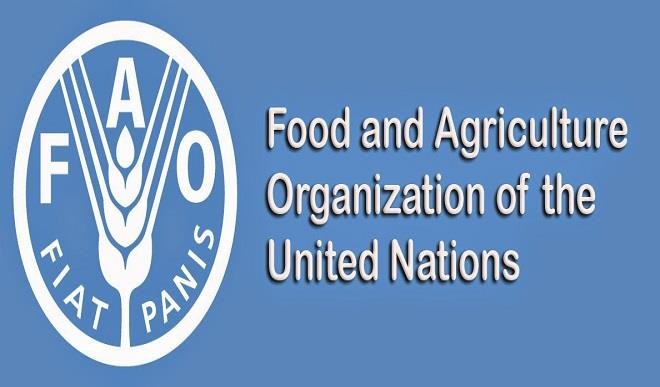FOA assists 3,600 dry season farmers in Konduga
The Food and Agriculture Organization of the United Nations (FAO) in partnership with an NGO, Samaritan Care & Support Initiative (SACSUI), has provided agricultural inputs to 3,600 farmers, most of them vulnerable women, for dry seasons farming in Konduga Local Government Area of Borno state. The Executive Director of the NGO, Dr. Tina Olayemi, disclosed […]

The Food and Agriculture Organization of the United Nations (FAO) in partnership with an NGO, Samaritan Care & Support Initiative (SACSUI), has provided agricultural inputs to 3,600 farmers, most of them vulnerable women, for dry seasons farming in Konduga Local Government Area of Borno state.
The Executive Director of the NGO, Dr. Tina Olayemi, disclosed this after flagging off of the distribution of seedlings to the farmers in Konduga.
She said the aim of the programme was to enable farmers in the area to boost their agricultural production towards achieving food security and combating hunger in the society.
“Right now, we are doing dry season farming in 13 communities of Konduga Local Government Area. We worked with them in the rainy season,” Dr. Olayemi said.
She said that was when the organisation moved from the “in-kind feeding livelihoods” programme.
She said the in-kind feeding programme was carried out by the World Food Programme (WFP) and handed over to FAO with the expectation of encouraging the benefitting farmers to grow enough food to sustain their families.
She said that the programme would restore and promote sustainable agriculture based livelihoods for food security, employment and nutrition as well as improvement of IDPs, returnees and vulnerable host families in the LGA.
“We have distributed seedlings such as okra, onion, amaranthus, tomato, carrot, cabbage and rice with fertilizers to 3,600 IDPs beneficiary farmers in Konduga LGA comprising 13 communities.
“Now, with dry seasons farming the number of farmers has increased to almost 4,000 households, and about 30 per cent of the farmers are widows.
“So we are giving agricultural tools and seedlings to the farmers. We are targeting food security so that they would able to feed themselves and sell part the produce to sustain their families instead of collecting in-kind foods from WFP.
“We need more support and intervention to reach out the farmers in other part of the state,” Dr. Tina said.
The communities ae: Amarwa, Ngurruri, Usmanti, Mandarari, Sabongari, Challumuri, Yawuri, Mashamari, Salari, Delwa, Bazzamari, Kawuri and Fanamari.
One the beneficiaries Mallam Bulama Mele, commended the FAO for coming to their aid in this critical period of food insecurity.
A widow and a benefitting rice farmer, Yagana Mohammed, from Sabongari, also thanked the FAO for its assistance which, she said would reduce their hardship in this dry season period.
Ya’ Kaka Ibrahim, who lost her husband in the Boko Haram crisis, also thanked FAO for coming to her aid with the some seedlings.
She said she was finding it very difficult to feed her seven children since when WFP stopped food assistance to her community.
